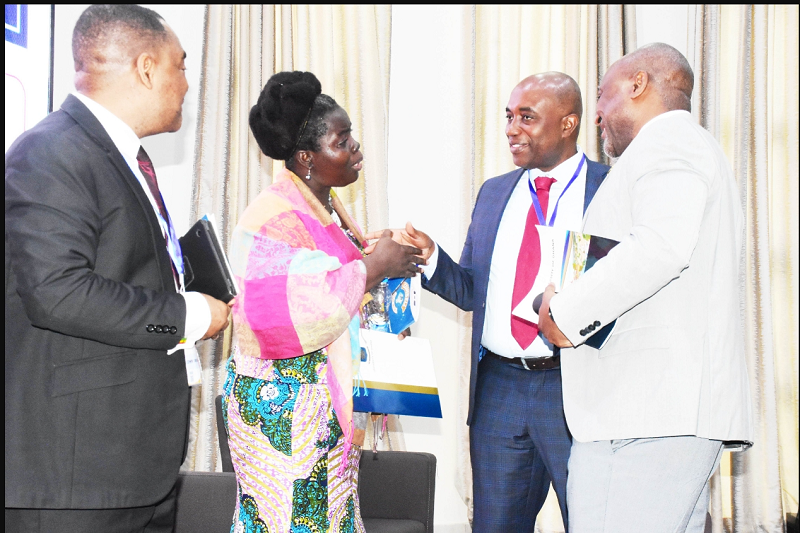At least 27,385 new cases of cancer-related diseases are recorded nationwide annually in Ghana, according to the 2022 Global Cancer Statistics (GLOBOCAN) report.
The report estimates that 17,944 persons lose their lives to cancers with prevalence over the last five years, reaching 63,764.
About 16,000 of new cancer cases were diagnosed among females who also succumbed more to the conditions than males.
The Acting Programmes Manager on Non-Communicable Diseases (NCDs) at the Ghana Health Service (GHS), Dr Efua Commeh, who made the disclosure, said while breast and prostate cancers were highest among females and males respectively, they were closely followed by liver and cervical cancers which were fast rising in the country.
She was speaking at the opening of the Fifth Biennial Scientific Conference of the College of Health Sciences at the University of Ghana on the theme; ‘Evolving Dynamics of Cancer Epidemiology.’
“Just as we know in females, the breast cancers are leading, followed by liver cancer in terms of numbers but when you come to the deaths, the cervical cancers are also high, and then for the males, the liver cancers are leading in terms of both numbers, incidence and mortality,” Dr Commeh said.
The Acting Programme Manager noted that while research into cancer incidences were limited in the country, factors including poor knowledge among the public and health professionals, myths and misconceptions as well as high cost of cancer care were driving late diagnosis, terminal complications and deaths.
“For cancer care, both the direct and indirect costs have a huge toll on patients. Although our health benefit packages claim to cover some cancers, practically when a patient now develops the cancer, they are made to pay huge out-of-pocket expenses.”
Furthermore, she disclosed that although four top childhood cancers which were also of great concern in Ghana were covered under the National Health Insurance Scheme (NHIS) in addition to breast and cervical cancers, more investment needed to be pushed into the area to make comprehensive treatment much affordable for patients.
“It is crucial that if we intend to improve on our outcomes, we look at the practicalities of care and how we can ensure that people can afford the cost of care because, how good is it that we diagnose somebody and the diagnosis is even going to kill them faster than the disease itself because the shock of being told that you have a terminal illness would end up giving the person either a stroke, a heart attack, or something that would kill them much faster than the progression of the actual disease, so there’s a lot more that we need to do,” she urged.
Dr Commeh advised the public to immediately report recurring symptoms to the nearest health facility and adopt healthy lifestyles in order to minimise risk of being exposed to cancers.
The Pro-Vice Chancellor for Students and Academic Affairs at the University, Professor Gordon Awandare, highlighted the need for more research into cancers to improve fight against the threat.
He said that cancer treatment could be well achieved if more funding is allocated to supporting research in the country.
Prof. Awandare thus appealed to the government to implement the new research and innovation law, which called for adequate funding for research to shape health policies and decisions.
For his part, the Provost of the College of Health Sciences, Prof. Alfred Edwin Yawson, said the three-day conference aligned with the College’s mission to advance health through education, research, and service, tackling both national and global health challenges
BY ABIGAIL ANNOH

